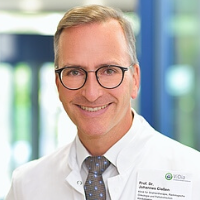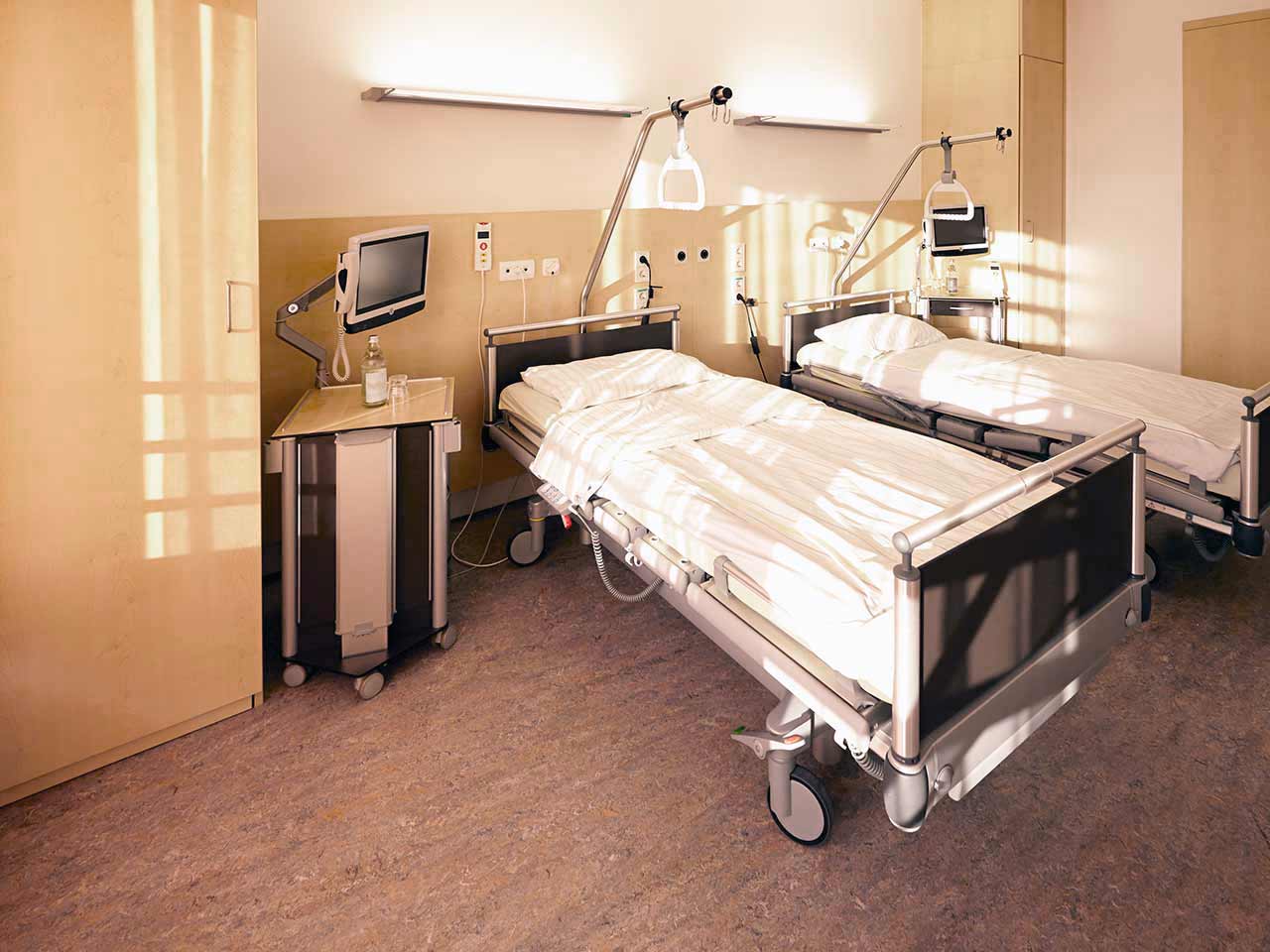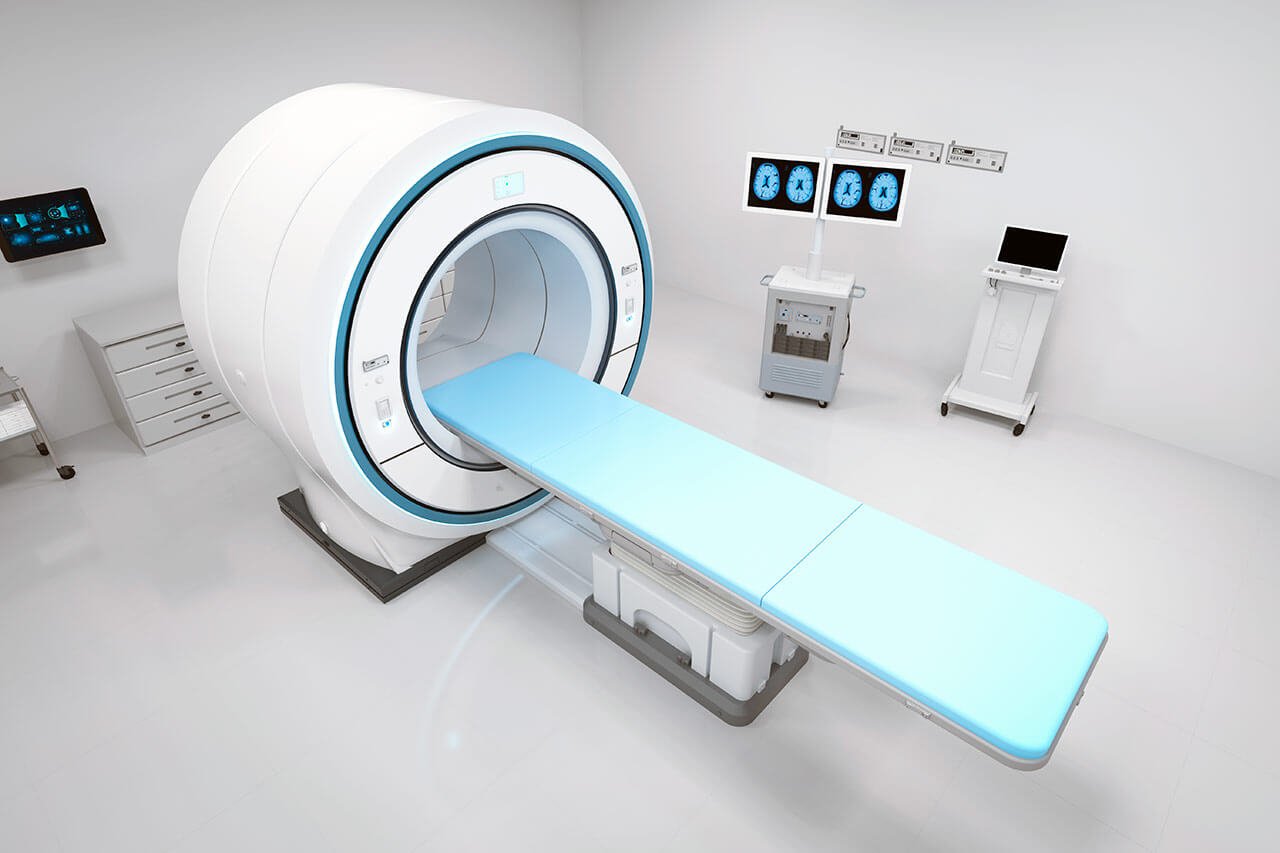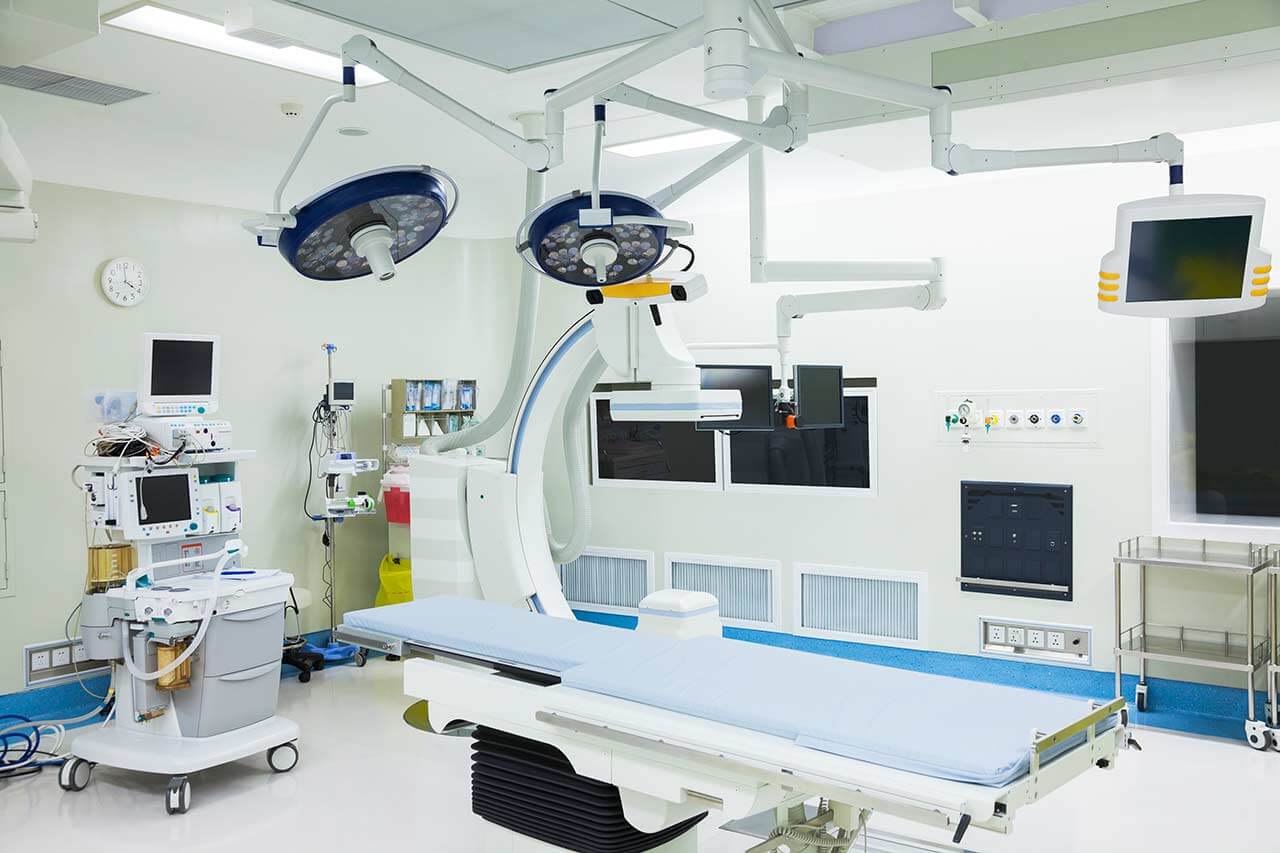
The program includes:
- Initial presentation in the clinic
- clinical history taking
- review of medical records
- physical examination
- laboratory tests:
- complete blood count
- general urine analysis
- biochemical analysis of blood
- TSH-basal, fT3, fT4
- tumor markers
- inflammation indicators (CRP, ESR)
- indicators of blood coagulation
- full course of the chemotherapy and radiation therapy
- nursing services
- consultations of related specialists
- explanation of individual treatment plan
How program is carried out
During the first visit, the doctor will conduct a clinical examination and go through the results of previous laboratory tests and instrumental examinations. After that, you will undergo an additional examination, including complete blood count, laboratory assessment of liver and kidney function. Based on the received results, the physician will elaborate the chemotherapy regimen, conduct radiotherapy planning with the help of CT or MRI, make the permanent tattoo marks on the skin and conduct CT simulation in order to assess the accuracy of the rays and the radiation dose. If necessary, related medical specialists will be involved in the elaboration of a treatment regimen (tumor board).
Chemotherapy and radiation therapy are carried out as the day hospital procedure, without mandatory admission to the hospital. At each visit, the physician will assess your general condition and the marks on the skin. After that, you will be placed in a shielded radiation therapy room, on a special table.
Each radiation therapy session lasts less than half an hour (including preparation). All this time, doctors and nurses are monitoring your condition, you can communicate with them through a loudspeaker. The procedure is completely painless. Depending on the planned course of treatment, you will visit the hospital from 1 to 3-5 times a week.
During the chemotherapy session, after the placement of a venous catheter, you will stay in a comfortable ward. An infusion system will be connected to the catheter, through which the required drug or a drug combination will be administered. All drugs are administered by intravenous drip, slowly, so the total duration of the infusion can be up to several hours. All this time, doctors and nurses will monitor your health condition closely.
After the completion of the chemotherapy and radiation therapy course, you will undergo control examinations aimed at assessing your condition and efficacy of treatment. After that you will receive the medical report with detailed recommendations regarding further follow-up and treatment. In the future, you will be able to have a distant consultation with your attending physician and schedule the next course of treatment, if necessary.
Required documents
- Medical records
- MRI/CT scan (not older than 3 months)
- Biopsy results (if available)
Service
You may also book:
 BookingHealth Price from:
BookingHealth Price from:
About the department
The Department of Radiation Therapy at the ViDia Hospital Karlsruhe specializes in the treatment of benign and malignant tumors, with a particular focus on cancer treatment. The physicians at the medical facility are highly competent in intensity-modulated radiation therapy (IMRT), volumetric modulated arc therapy (VMAT), image-guided radiation therapy (IGRT), brachytherapy, and combination chemoradiation therapy. The department also offers palliative care for patients with advanced stages of cancer. Moreover, the department's radiation therapists have unique competence in performing high-precision stereotactic irradiation of tumors in the brain, lung, and liver. Stereotactic surgery is a highly effective irradiation technique that causes virtually no side effects. In most cases, this therapeutic procedure is an alternative to open surgery for patients for whom surgery is contraindicated. It should be noted that the department is located in a new facility with state-of-the-art equipment, including three linear accelerators from Siemens and Varian, the very latest systems for CT, MRI, and PET/CT. Thus, the doctors have at their command all the necessary resources for effective and safe radiation therapy. The department is headed by Prof. Dr. med. Johannes Classen.
The first stage of the therapeutic process is consultation with a doctor, during which the specialist studies the patient's medical history, current medical reports, and images to determine the advisability of radiation therapy in a particular case. This is followed by the stage of developing the optimal treatment regimen. Irradiation is planned based on CT images. The specialists determine the target area for irradiation, calculate the radiation dose, and prescribe the optimal number of sessions. Immediately before irradiation, the patient assumes a supine position on the linear accelerator table. As a rule, physicians use vacuum cushions, stereotactic frames, and other assistive devices to position the patient. The doctors perform control CT scans just before the irradiation session. This helps to maximize the accuracy of radiation delivery to the pathological focus. The radiation then begins, which lasts several minutes and is absolutely painless.
One of the most demanded treatment methods in the department is intensity-modulated radiation therapy (IMRT). The procedure is highly effective. It can be used to irradiate both benign and malignant tumors. The IMRT technique is a type of conformal therapy in which specialists can vary the intensity of each individual beam. As a result, the maximum dose of radiation is directed toward the tumor, while healthy tissues are virtually unaffected. The department also offers an advanced IMRT method, volumetric modulated arc therapy (VMAT). The essence of this type of irradiation is almost identical to IMRT, but when using this method, the radiation exposure to the tumor is carried out by continuous rotation of the linear accelerator gantry up to 360°. Therefore, VMAT allows doctors to distribute the dose with the highest precision according to the parameters of the shape and size of the tumor while practically not affecting healthy tissues. In many cases, a single VMAT session is sufficient to suppress the malignant tumor, which is also a significant advantage.
The department's special offer is stereotactic radiation therapy. This type of irradiation is not offered in every European hospital because it requires expensive equipment and special training for doctors. Stereotactic irradiation involves the use of focused, high-energy beams to target the tumor. Meanwhile, the location of the tumor is precisely determined using a 3D coordinate system. The advantage of this method lies in the high precision of beam penetration into the tumor. In most cases, only one session of stereotactic radiation therapy is required to completely destroy the pathological neoplasm, whether it is a malignant tumor or an epileptogenic focus in the brain. The department's doctors perform stereotactic radiation therapy for patients with hard-to-reach tumors in the brain, lungs, and liver.
The department's specialists also brilliantly perform internal radiation therapy using a brachytherapy procedure. Both low-dose and high-dose brachytherapy techniques are used here. The optimal treatment option is determined on an individual basis, taking into account the patient's clinical data. A modern Nucletron device is available in the department for this type of irradiation. During brachytherapy, a radiation source (Iridium-192) is delivered directly to the pathological focus using applicators under X-ray guidance, allowing radiation to impact only the tumor with virtually no adverse effect on healthy tissues. Brachytherapy is indicated for patients with head and neck tumors, breast cancer, cervical cancer, and prostate cancer.
The department specializes in the following types of radiation therapy:
- Intensity-modulated radiation therapy (IMRT)
- Volumetric modulated arc therapy (VMAT)
- Image-guided radiation therapy (IGRT)
- Stereotactic radiation therapy
- Brachytherapy
- Combination chemoradiation therapy
- Other types of radiation therapy
Photo of the doctor: (c) ViDia Kliniken Karlsruhe
About hospital
The ViDia Hospital Karlsruhe is a modern medical facility with a rich history and traditions. The medical complex is an academic hospital of the University of Freiburg, granting patients access to advanced university medicine and the very latest therapeutic developments. The hospital first opened its doors in 1851 and, since then, has maintained a leading position in the European medical arena. The health facility offers a state-of-the-art technical base, comfortable infrastructure, and highly qualified doctors. All this allows the hospital to provide patients with top-class healthcare in accordance with modern standards. In addition, the hospital's team honors Christian traditions, emphasizing a humane attitude towards the patient and striving to provide understanding and support.
The hospital employs a large team of specialists, consisting of over 3,200 staff members, including 400 highly qualified physicians. The medical team admits more than 50,000 inpatients every year, and about 100,000 patients are diagnosed and treated on an outpatient basis or in a day hospital. More than 3,000 babies are born in the maternity rooms of the Department of Obstetrics every year. More and more patients, including those from abroad, come to the hospital for medical care annually.
The hospital has 24 specialized departments with 25 highly certified, narrowly focused centers integrated into them. A large Cancer Center certified according to the German Cancer Society (DKG) standards also operates here. Thus, one of the main clinical focuses of the medical complex is cancer treatment. The hospital also excels in other specialties, such as general surgery, abdominal surgery, thoracic surgery, orthopedics, cardiology, endocrinology, otolaryngology, pulmonology, gastroenterology, and others. There are 37 operating rooms available here for surgical treatment, the equipment of which corresponds to the highest technical level. Priority is given to performing minimally traumatic operations using minimally invasive, endoscopic, arthroscopic, and endovascular techniques.
The ViDia Hospital Karlsruhe enjoys a high reputation in Germany and far beyond its borders. The health facility successfully combines innovative medicine with Christian values, thanks to which the patient receives not only effective treatment but also care, understanding, and support.
Photo: (с) depositphotos
Accommodation in hospital
Patients rooms
The patients of the ViDia Hospital Karlsruhe stay in comfortable single and double rooms with modern design. Each patient room has an ensuite bathroom with a shower and a toilet. The standard room furnishings include an automatically adjustable bed, a bedside table, a table and chairs, a wardrobe, a telephone, a TV, and a radio. Wi-Fi access is also available in the patient rooms.
Patients can also be accommodated in enhanced comfort rooms. These rooms are very spacious and are additionally equipped with a safe, a mini-fridge, and upholstered furniture.
Meals and Menus
The patients of the hospital are offered three tasty meals a day: breakfast is served buffet-style, and there are several set menus to choose from for lunch and dinner.
If, for some reason, you do not eat all of the foods, you will be offered an individual menu. Please inform the medical staff about your dietary preferences prior to treatment.
Further details
Standard rooms include:
![]() Toilet
Toilet
![]() Shower
Shower
![]() Wi-Fi
Wi-Fi
![]() TV
TV
Religion
There are several chapels on the territory of the hospital. Regular Catholic and evangelical services are held here. Patients can also visit one of the chapels at any time to find a quiet place to pray, if desired.
Accompanying person
Your accompanying person may stay with you in your patient room or at the hotel of your choice during the inpatient program.
Hotel
You may stay at the hotel of your choice during the outpatient program. Our managers will support you for selecting the best option.





